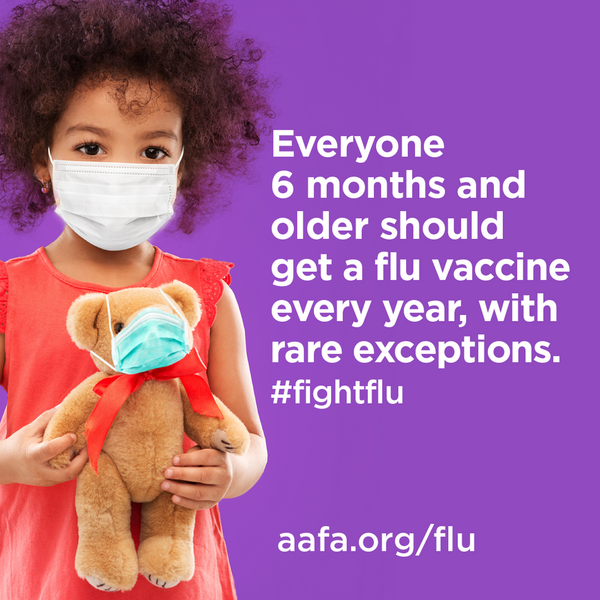It is safe for ALL people (6 months and older) with an egg allergy to get a flu vaccine every year. This is true no matter how severe your egg allergy was in the past. This includes people who have had anaphylaxis (a severe allergic reaction) to egg.
Five organizations recommend that people get the flu vaccine every year, even if they have an egg allergy. These organizations are:
- Asthma and Allergy Foundation of America (AAFA)
- Centers for Disease Control and Prevention (CDC)
- American Academy of Pediatrics (AAP)
- American Academy of Allergy, Asthma, and Immunology (AAAAI)
- American College of Allergy, Asthma, and Immunology (ACAAI)
You do not need to be observed in a doctor’s office for 30 minutes after getting the vaccine if you have or had an egg allergy.
Some people with asthma can get the flu shot or nasal spray depending on age and if their asthma is well-controlled. AAFA recommends the following for people with asthma:
- Ages 6 months to 4 years: Get the flu shot.
- Ages 4 to 49: If you have asthma and it is under control with no symptoms, you can get the flu shot or the nasal spray vaccine.
- Ages 4 to 49: If you have asthma and have had recent asthma episodes or wheezing, get the flu shot.
- Ages 50 and older (whether you have asthma or not): Get the flu shot.

The Risk of the Flu Is Greater Than the Chance of an Allergic Reaction to the Vaccine
The chance of getting a serious illness from the flu is much higher than the chance of an allergic reaction. And these serious illnesses, like pneumonia, can cause hospitalization or death. If your child also has a chronic disease like asthma, they are at an even higher risk for flu-caused illnesses.
If you’ve been holding out on getting the flu vaccine, it’s not too late. Flu season is just starting and will continue through the spring. There is still time to protect your family. The important thing to remember is an egg allergy is not a reason not to get the flu vaccine.
Medical Review: October 2022 by David Stukus, MD


Comments (4)